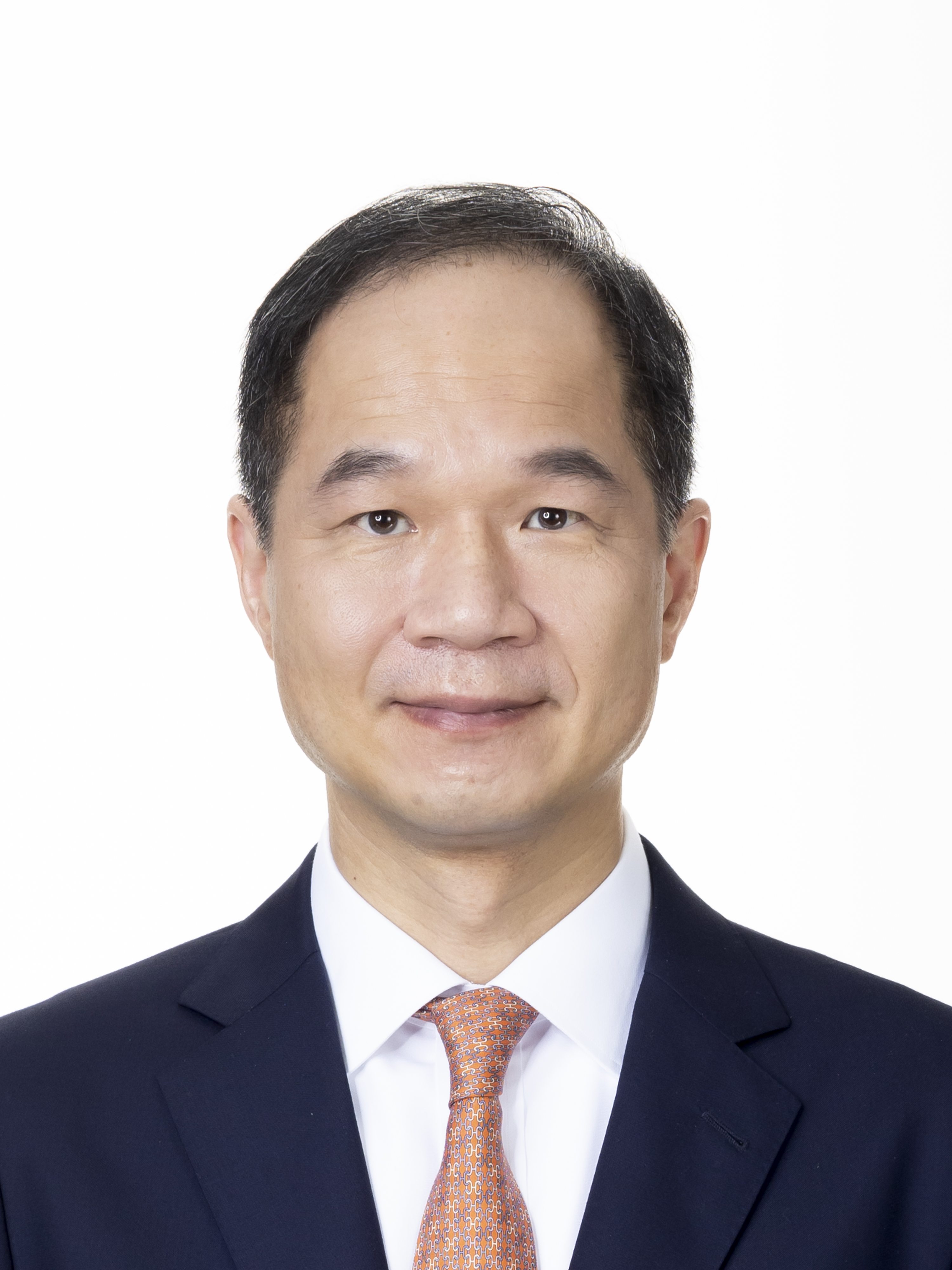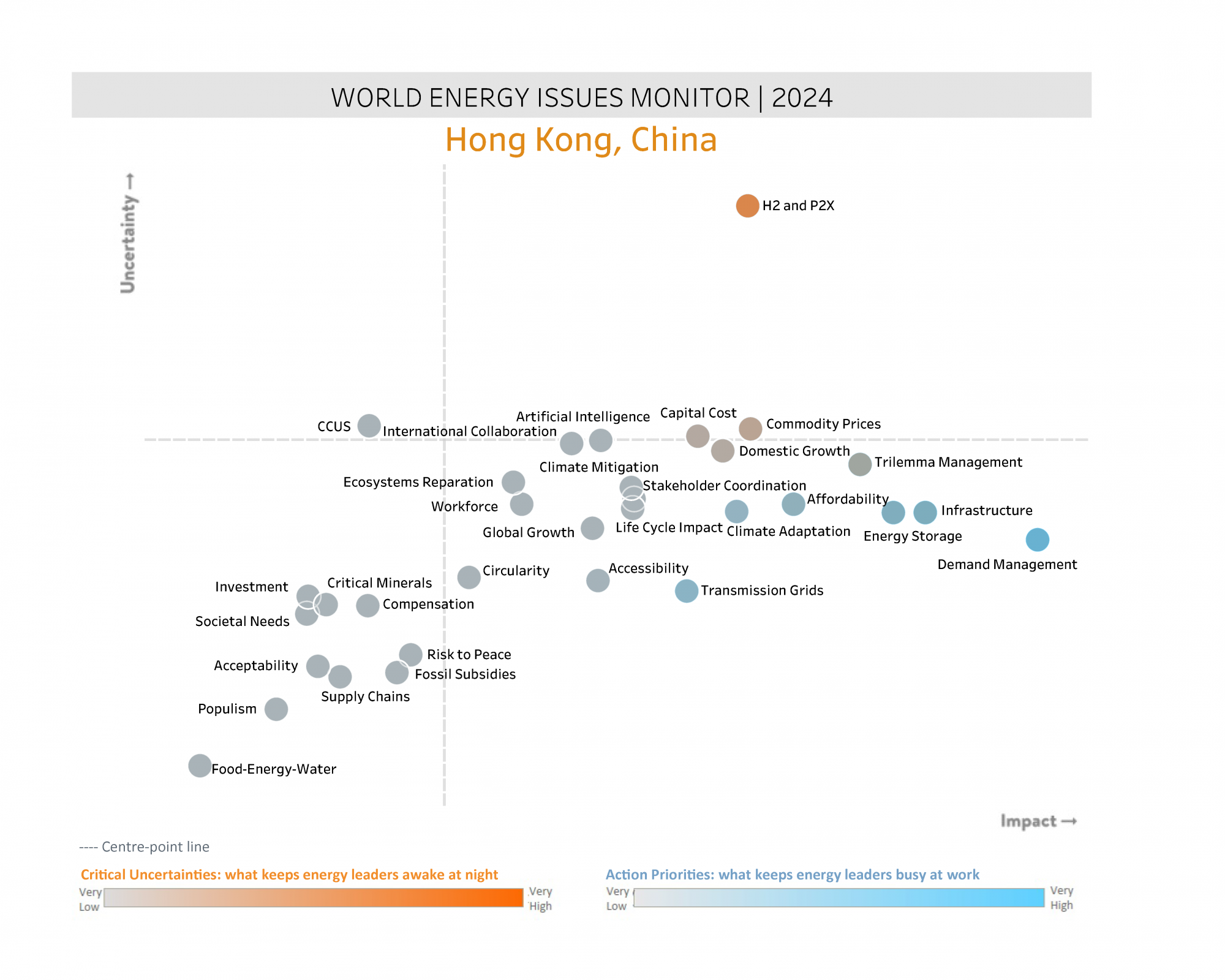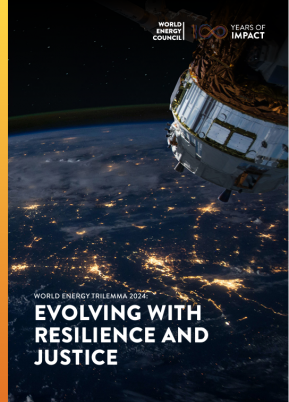The Hong Kong Member Committee of the World Energy Council has been part of the World Energy Council family for over a decade. Their members are composed of electric and gas utilities as well as a power equipment manufacturer.

Mr Chiang is the Chief Executive Officer and Executive Director of CLP Holdings Limited, responsible for the overall performance of the Group. Prior to assuming his role as Chief Executive Officer - Designate on 1 July 2023, he was the Managing Director of CLP Power Hong Kong Limited (CLP Power) since 2017, holding the overall responsibility for CLP’s Hong Kong business, which includes a vertically integrated electricity utility serving over 6 million people.
Mr Chiang is a Fellow of the Hong Kong Institution of Engineers, a Chartered Engineer, a member of the Institution of Engineering and Technology and an Honorary Fellow of the Vocational Training Council. He is currently a member of the HKSAR Election Committee and a member of the Engineers Registration Board. He holds committee roles with the Hong Kong Management Association, Hong Kong Trade Development Council and Community Chest of Hong Kong. He is also a member of the Advisory Committee of the School of Energy and Environment of the City University of Hong Kong and a member of the advisory board of the MBA Programmes at The Chinese University of Hong Kong. He is a member of the 14th Beijing Municipal Committee of the Chinese People's Political Consultative Conference.
Mr Chiang joined CLP Power as a Graduate Trainee in 1988. He has extensive experience in power generation, transmission and distribution systems as well as regulatory strategy. He has held various posts in different areas including power system asset management, planning, design, operation and maintenance, power quality, and corporate and regulatory strategy.
He holds a Bachelor of Science in Electrical & Electronic Engineering from the University of Hong Kong, a Master of Science in Electrical Engineering from the Hong Kong Polytechnic University and a Master of Business Administration from the Chinese University of Hong Kong.
Energy in Hong Kong

Building upon the evolvement and progress in the past two years, the Hong Kong 2024 Energy Issues Map illustrates grouping of the issues at a clear trend towards higher certainty. This reflects the steady development of Hong Kong’s economy and progress achieved following Hong Kong’s Climate Action Plan 2050, which sets the vision of “Zero-carbon Emissions • Liveable City • Sustainable Development” and brings the strategies, plans, targets and actions together for Hong Kong to achieve carbon neutrality before 2050.
Through the COP28 United Nations Climate Change Conference in 2023, global commitments were obtained to transition away from all fossil fuels in energy systems. This target is expected to be further supported by the continuous technology developments of renewables, nuclear power and energy storage solutions, as well as the strong support from the governments, including Hong Kong.
- As part of the Government’s pledge in its Climate Action Plan 2050, the Hong Kong Government will support a series of actions to combat climate change, and is adopting a four-pronged strategy to reach neutrality: net-zero electricity generation (e.g. enhancement of regional cooperation on non-carbon energy), green buildings (e.g. enhancement of energy efficiency in both new and existing buildings), green transport (e.g. decarbonisation of the vehicle fleet) and waste reduction (transformation of the waste management system).
- Currently, the energy transition in Hong Kong is accelerating, as the Government will be investing a further HK$240 billion to support actions for combating climate change. However, due to the geographical restriction and high population density, Hong Kong has a very limited scope to develop local renewable energy sources. Thus, nuclear energy is currently imported from Mainland China to Hong Kong to reduce the GHG emissions intensity of electricity sold. In the future, further nuclear energy import is critical to support the Government’s target of reducing carbon emissions by half against the 2005 level before 2035.
- Alongside the increasing proportion of renewable energy integrated into the grid, as well as the increasing import of non-carbon energy in particular nuclear through the enhancement of regional cooperation, grid infrastructure is essential for incorporating more energy from different sources into the system and making it accessible to more customers, to enable greater adoption of net-zero energy. Meanwhile, Energy storage solutions, such as pumped hydro storage and battery energy storage systems, are pivotal to the successful integration of additional renewable energy and nuclear power, while maintaining the balance between power supply and demand. Thus, the Government has approved to establish a grid-scale battery energy storage system of around 100MW within 2024 ‒ 2028.
- In the transport sector, the Government is also making effort to promote the use and supply of new energy in land, sea and air transport to accelerate green transformation. For example, to support green transformation of public land transport, the Government is formulating a citywide green transformation roadmap and timetable for public buses and taxis, with a view to achieving zero vehicular emissions by 2050. Besides, first registration tax concession is being offered for electric private passenger vehicles. As a result, the ratio of electric vehicles among all newly registered private passenger vehicles has increased significantly in recent years, from 6.3% in 2019 to 78% in Q1 2024.
- Given Hong Kong’s renewable resources is limited, the Government is also exploring the role of green hydrogen in its transition. Though a number of countries have already developed their hydrogen strategy or plan, it still remains a critical uncertainty in Hong Kong, together with other P2X opportunities. Currently, the Government is planning to formulate the Strategy of Hydrogen Development, study the feasibility of providing green methanol bunkering for both local and ocean-going vessels, and will continue to test out more new energy vehicles, including electric public light buses, electric heavy goods vehicles, electric coaches, hydrogen double-deck buses and hydrogen street washing vehicles. Furthermore, a major power company is also planning to carry out a pilot project on blending hydrogen into natural gas for power generation within 2024 ‒ 2028.
KEY TAKEAWAYS
Achieving carbon neutrality by 2050 is a top priority for Hong Kong. Since its Climate Action Plan was promulgated in October 2021, the Government has been developing various measures to accelerate the energy transition, through a combination of both supply-side decarbonization and demand-side emission reduction.
On supply side, the Government is planning to achieve the long-term target by increasing non-carbon power and energy supply through renewable energy development and exploring new energy sources including non-carbon energy import for electricity generation and regional cooperation. The Government has pledged to cease using coal for daily electricity generation by 2035. Coal will be switched to gas as a transition fuel, and eventually to a cleaner fuel such as hydrogen produced from non-carbon emitting sources. This requires building new, efficient gas-fired generation, or refurbishing or upgrading existing gas turbines to ensure they are hydrogen-ready or can be retrofitted with carbon capture technology.
On demand side, demand management is one of the actions with high priority for Hong Kong. In addition to green transport, energy savings and green buildings were also formulated as major decarbonisation strategies in Hong Kong's Climate Action Plan 2050, to reduce the overall electricity consumption of buildings through promoting green buildings, improving buildings' energy efficiency and promoting a low-carbon lifestyle. For example, it is targeted to reduce the electricity consumption of commercial buildings by 30-40% from the 2015 level by 2050.
As a global metropolis, maintaining a reliable and clean power supply is critical to Hong Kong. On the other hand, similar to other regions of the world, Hong Kong is also experiencing growing economic inequity, combined with aging population challenge. Though it may encounter challenges for achieving carbon neutrality by 2050, Hong Kong will always value affordability during and after the energy transition, to support a high-quality and sustainable development.
Acknowledgements
Hong Kong Member Committee
Downloads

Hong Kong World Energy Trilemma Country Profile
Download PDF
World Energy Trilemma Report 2024
Download PDF
Hong Kong Issues Monitor 2024
Download PDF







_-80_result_688_387_s_c1_c_c.jpg)


